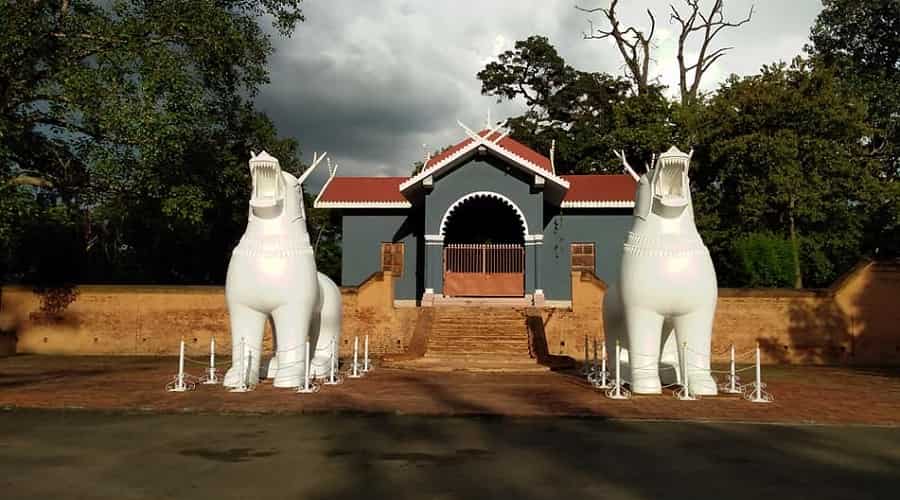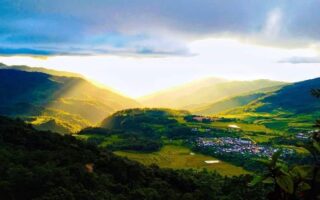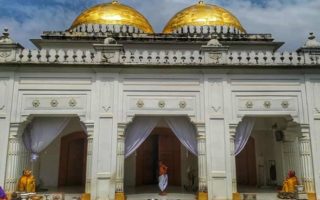Manipur is the most prominent state in India which encloses a wide range of tourist attractions. It includes national park and wildlife sanctuaries, pilgrimage sites, forts and palaces, and various other spots. But among all of them, the forts and palaces in the Manipur state are worth to witness. The Kangla Palace is one of the renowned sites which are known as the Manipur Fort. This site is the most important attraction located in the capital city of Manipur which is valued in this region. It is one of the exquisite palaces which are famous for its archeological and historical site. The Kangla Palace is also identified as the old palace of Manipur. According to the archeologist, the fortress of this state was well designed and structured to make it the most iconic ancient site not only in Manipur but also in India.
This palace was constructed by the King Khagemba in 1611 A.D who was the leader of the Kangla city. Many years passed to build this historical and archeological site due to the invasion between the Burmese and Manipur. This battle was on for seven years due to which the construction took a halt. According to the records of the archeologist and the legendary tale, the structure of the Kangla Palace was majority of the time into desert. Later the son of Khagemba, Khunjaoba took some initiative to improve the beautification and enrichment in work to make the palace the icon fort of Manipur state. Within this palace, you can see a big moat where the dig was filled with water. As per the record, the son of the king got married to the princesses of Manipuri by leaving all his disputes.
So the project of constructing was passed on to King Garibaniwaz who enlarged and improved a lot of work in this palace. Visitors hail here from all corners of the world including local and international to witness this alluring site. The main highlight of the palace is the big brick walls which are constructed by the well burnt bricks that give a magnificent look to the Manipur fort. It is an alluring place which reflects various legendary stories of Manipur state that are mentioned in the history of India. If you are planning to tour Manipur in your next weekend make sure you visit the Kangla city, where you can get to explore various attractions including Kangla Palace.
Kangla Palace

At a Glimpse:
- Location: Kangla city, Manipur, India.
- Established In: Earlier period of 1611 A.D.
- Constructed By: King Khagemba.
Facts
The Kangla Palace is one of the oldest palaces which are nestled at the city of Kangla in the state of Manipur, India. The palace of Kangla was located on both the western side and eastern side of the reservoir of the Imphal River. But, at present the beautiful palace is remained only on the western side of the river bank. It is now one of the famous ruins which attract a number of tourists. The meaning of the word Kangla is defined as the “dry land” which lies in the old Meitei. This enchanting palace was a traditional place for the Meitei rulers during the earlier times of Manipur. According to legendary tales, the British government referred the Kangla Palace as the most renowned tourist attraction which is simply known as the ‘Manipur Fort.’ The Kangla Palace is the most vital archeological and historical site which is preserved in the state of Manipur even today. The land or soil of this state was set up to develop the Kangla city. When this capital city of Manipur was found, it was comprised with historical, religious, and other centers that are preserved here.
It is the main attraction of Manipur which was built by the king Khagemba during the earlier times of 1611 A.D. The Kangla Fort was constructed in conquere of Chinese. According to the records the King Khagemba build a massive brick wall in the year 1632 A.D. at the western gate of the fort. The main intention of making the brick wall was to keep the Chinese prisoners inside which were arrested during the Chinese invasion of the eastern boundary of Manipur state. Khunjaoba was the son of the King Khagemba who took initiatives for improving more on the beautification and fortification work of the Kangla Palace.
According to the records of the archeologist, it is said that the king of this capital city has dug up a moat also which is known as Thangapat which is found on the western part of the Manipur Fort. Under the rule of the King Khunjaoba, the prestige and power of the Manipur state was at peak and was well famous. Later the king was approached by the Burmese chiefs and other kings to marry the Manipuri princesses by leaving all his disputes. So the challenge to build the Kangla Palace of Manipur was handed over to the King Garibaniwaz who succeeded in improving and enlarging the fort. Even after him, the making of Kangla fort was passed on to other kings and chiefs. Later on the sovereignty of Maharaja Bhagyachandra, the Kangla palace remained deserted for a longer period of time due to the invasion between the Manipur and Burmese. The Maharaja Gambhir Singh assists to the Manipur Levy, who set the rulers of Manipur free from the hands of Burmese by defeating their forces which took around seven years.
The Kangla Palace is fenced with huge boundary walls which the British destroyed later. According to the records of the making of the massive structure, it is stated that the well burnt red bricks were only used for big wall (Citadel) which measured a height of twenty feet. The Citadel contains three main entrance, among that the two are positioned to Southern and western side of the Manipur fort. It is a worth watching site and one of the popular and enduring places which is maintained from the previous times till today. The capital city of Manipur also offers other famous attraction for tourist including the sacred temples, historical and archeological sites, assembly hall, and many more. Tourists from across the globe come to witness this wonderful Kangla Palace in the state of Manipur. People who are keen to archeology and history for them it is the perfect place to explore where it reflects various legendary stories that are mentioned in the Indian history which you can learn.


